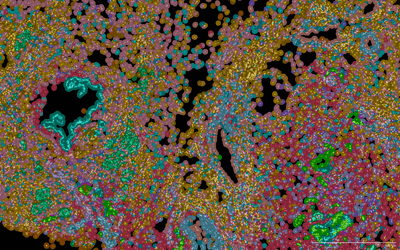Login
Subscribeepigenetics

Fixing the Problem with Induced Pluripotent Stem Cells
Tanvir Khan, PhD | Oct 31, 2023 | 4 min read
A new strategy prevents reprogramming-induced epigenetic aberrations in human induced pluripotent stem cells.

Silencing Epigenetic Complexes Re-sensitizes Drug-Resistant Cancer Cells
Rachael Moeller Gorman | Sep 25, 2023 | 4 min read
Researchers studying lung cancer cell lines found that chromatin remodeling underlies one type of osimertinib resistance.

Science Summarized: Predict Functional Genomics with Confidence
biomodal | 1 min read
An advanced multiomics solution allows researchers to predict gene expression, chromatin accessibility, and enhancer state from one DNA sample.

New Epigenetic Clocks May Confirm Extreme Age
Ida Emilie Steinmark, PhD | Sep 8, 2023 | 4 min read
How will a new version of epigenetic clocks aimed at validating the age of people older than 100 years of age balance accuracy and anonymity?

Stress Increases Biological Age, But Recovery Can Revert It
Alejandra Manjarrez, PhD | Apr 21, 2023 | 2 min read
A new study relying on DNA methylation clocks suggests that the biological age of mouse and human cells can fluctuate in response to stressful events.
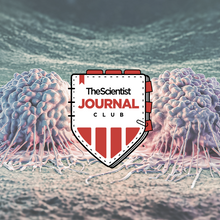
The Scientist’s Journal Club: Cancer
The Scientist | 1 min read
Scientists present the latest research on immune cell responses to cancer, the role of epigenetics in cancer, and molecular imaging of the tumor microenvironment.

Mice Pass Epigenetic Tweaks to Pups
Katherine Irving | Feb 17, 2023 | 5 min read
An engineered methylation pattern persisted for four generations of mice, demonstrating transgenerational epigenetic inheritance can occur in mammals.

Epigenetic Manipulations Can Accelerate or Reverse Aging in Mice
Alejandra Manjarrez, PhD | Jan 12, 2023 | 4 min read
Repairing damaged DNA appears to drive aging by causing the loss of epigenetic information, but restoring that information reverses such effects, a study finds.

Methylation Sequencing in Cancer Detection
The Scientist and Twist Bioscience | 1 min read
Discover how efforts to uncover the genome's methylation patterns advance cancer detection.
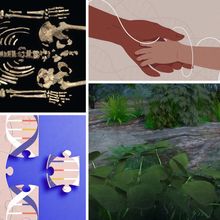
Our Favorite Genetics Stories of 2022
Christie Wilcox, PhD | Dec 22, 2022 | 4 min read
This year’s stories highlight the expanding versatility of genetic techniques and the increasing utility of such research in all life science fields.

Epigenetics May Remember Ancestors’ Mutations
Holly Barker, PhD | Dec 1, 2022 | 4 min read
Parents’ mutations, even if they’re not inherited by offspring, could affect subsequent generations through changes to epigenetic marks, a study finds.

One Sequence, Many Variations
Van Andel Institute | 5 min read
Andrew Pospisilik explores the epigenetic changes that give organisms the plasticity to change in response to their environments.
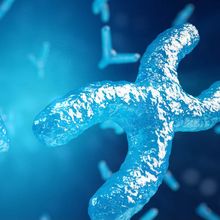
X Chromosome Silenced in Some Cancers in Males
Natalia Mesa, PhD | Nov 11, 2022 | 3 min read
A study finds that XIST, the gene that shuts down one X chromosome in people who have two, is linked to cancer in males.
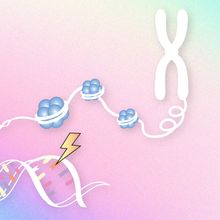
Infographic: How Epigenetic Marks Can Change the Genome
Katarina Zimmer | Nov 1, 2022 | 2 min read
Although epigenetic changes were long thought to largely act on the genome, rather than as part of it, research is now showing that these patterns can, directly or indirectly, change the genetic code.

Exposed: Environmental Echoes in Health - A Special Podcast Series
The Scientist and Van Andel Institute | 2 min read
Epigenetic experts discuss how environment and diet leave lasting impressions on the human genome.
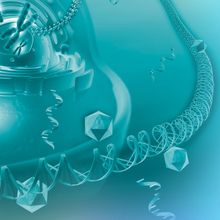
Do Epigenetic Changes Influence Evolution?
Katarina Zimmer | Nov 1, 2022 | 10+ min read
Evidence is mounting that epigenetic marks on DNA can influence future generations in a variety of ways. But how such phenomena might affect large-scale evolutionary processes is hotly debated.

Methylation in Young Brains May Be Key to Obesity: Mouse Study
Alejandra Manjarrez, PhD | Oct 19, 2022 | 4 min read
Epigenetic events, such as methylation, during early brain development in mice occur in genomic regions associated with BMI in humans, according to a new study.

The Epigenetic Landscape During T Cell Exhaustion
The Scientist and 10x Genomics | 1 min read
In this webinar, E. John Wherry and Debattama Sen will discuss how epigenetic scarring of exhausted T cells influences chronic infections.

Drug Spurs Neuron Growth in Mice with Chronic Spinal Cord Injury
Natalia Mesa, PhD | Sep 27, 2022 | 4 min read
A protein duo increases transcription of growth-related genes to enhance axon regeneration and boost plasticity, a study finds—but fails to improve mobility.
